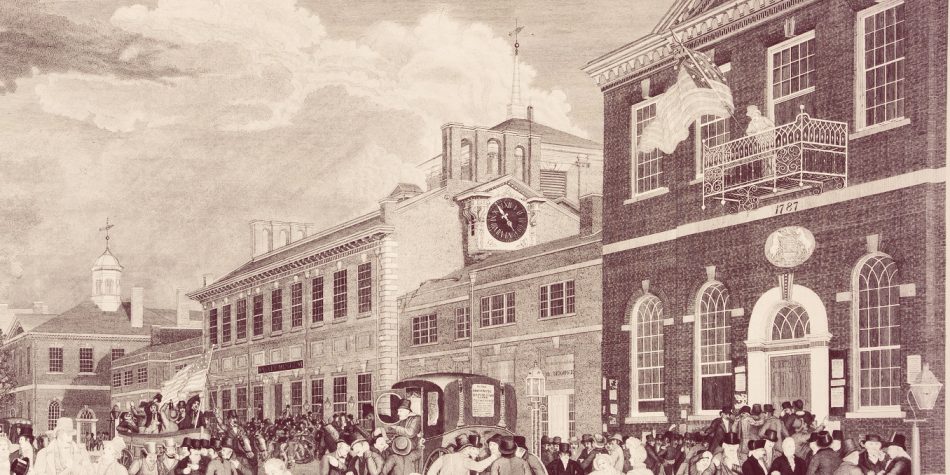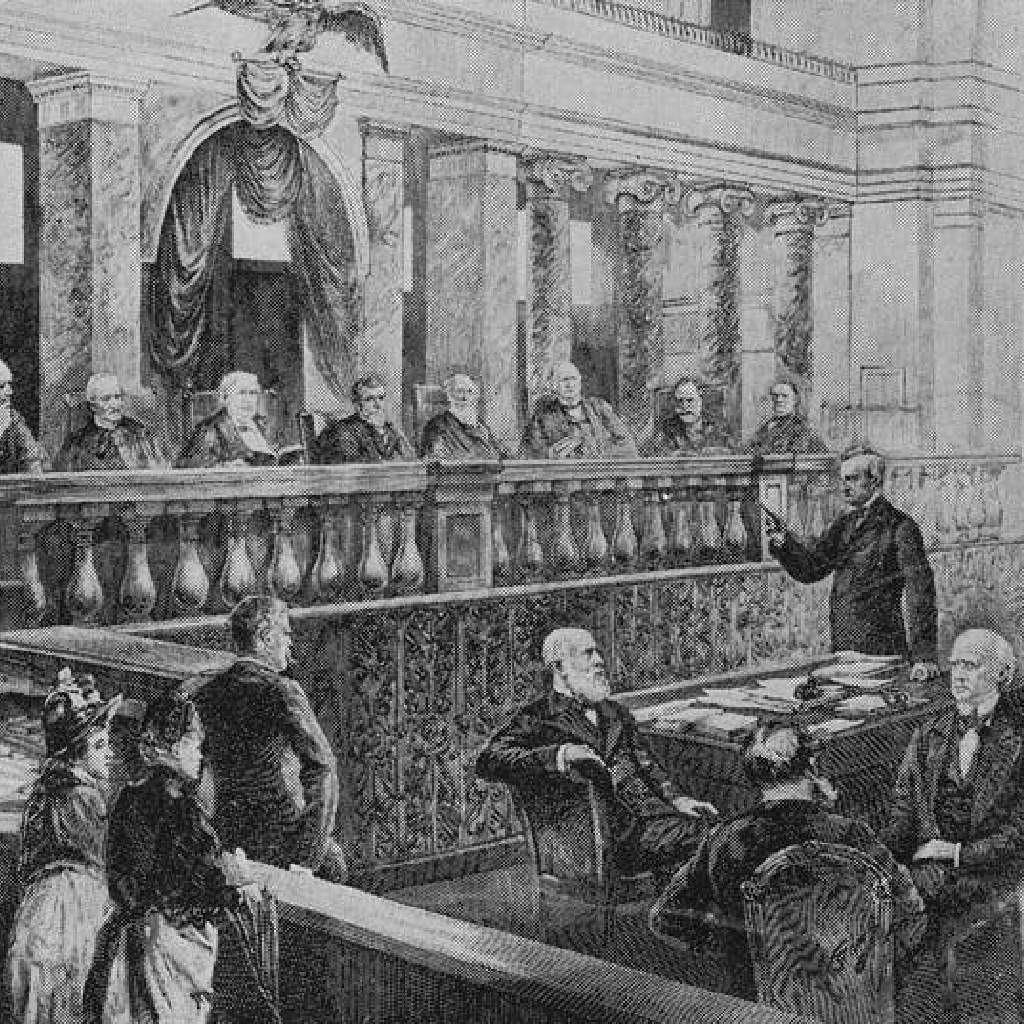During the holidays, Glenn Beck got a call from the White House. While the transcript from another phone call got all the press this week, the report-out Beck gave from the surprise conversation caught our attention, especially for how it illuminated the vast differences in how Americans are responding to and interpreting the recent Presidential election.
To be clear, most Americans (about 60% of them, according to recent polling) believe the election was fair and legitimate. But it’s equally clear that it’s not just President Trump who has concerns with the election, with a Quinnipiac poll over a month after the election finding an astounding 77% of Republican respondents believing there was widespread fraud in the presidential election, and a full 34% of all respondents believing that Biden’s victory was illegitimate.
34% is not 3%. And it appears these disagreements won’t be going away anytime soon. Because we believe trying to hear each other out still matters (for lots of reasons), we’ve worked on another “disagreement map” of the competing interpretations involved. As with our previous map of COVID-19 disagreements, the aim of the map is not to lay out the evidence supporting different positions—but instead, to simply sketch out as best we can what those positions are, attempting what Charles Taylor once called a “perspicuous contrast.” In these heated times, it’s remarkable how much people struggle to understand distinctly and fairly what political opponents actually believe.
That means we try to summarize competing arguments in their strongest and most compelling terms—comparing them side by side, in as fair a light as possible. Even so, we’ve found these maps to be remarkably irritating to some people on both sides. In this case, we’ve already had people tell us this article “trivializes a crime”—with one friend telling us, “So long as we’re talking about how we feel and are seeing each other’s perspective, everything is going to be fine. Really? Sometimes it’s just about finding the truth and acknowledging it in the open light of day.” No doubt, we’ll hear similar things from democrats concerned that we’re giving a platform to dangerous, and reckless accusations.
So, to be clear: our goal is not to suggest that it doesn’t matter which side you believe, or to argue there is no substantial evidence to validate one side or the other, or even to suggest that both sides are equally valid or supported. Rather, we’re simply trying to capture in summary form, the contours of contrasting belief that currently exist on the matter.
In these heated times, it’s remarkable how much people (on all sides) struggle to understand distinctly and fairly what political opponents actually believe. (So much easier to hear what your favorite critic of Those People tells you they really believe). We’ve been listening carefully to the different arguments being made and doing our best to hear the nuances. So without further ado, with an aim of encouraging deeper listening (even and especially now) between Americans who might disagree on these matters, we provide this juxtaposition of views, created by our own staff (that doesn’t agree on what happened in the election—and in many cases, like other Americans, isn’t completely sure what the full truth is).
1.Evidence. Is there any legitimate evidence to support the concerns of those who believe there was substantial, and potentially decisive fraud in the recent Presidential election?
- No, there simply is not. With all the reviews that have been conducted, no damning evidence of fraud or even serious voter irregularities has been uncovered—at least not any more than happens in normal years, and certainly not sufficient to overturn the election.
- Yes, there definitely is. As evident across nearly a thousand affidavits sworn under oath, there is a surprisingly large amount of documented evidence of serious fraud—significantly more than happens in normal years, and enough to potentially overturn the election. The kind of conclusive evidence people demand will only be uncovered through a thorough forensic analysis of ballot handling processes (machines and electronic voting machine logs) that have been mostly out of reach.
2.Voting Logistics. Given these extraordinary changes in voting connected with the pandemic and updated technology, doesn’t all this make fraud easier—with the possibility of a small group able to exploit the process in order to influence the results?
- Sure, you can believe that—along with a variety of other zany conspiracy theories that more and more people seem to be gravitating towards. The truth is these technologies have been proven to be trustworthy—and the choice to vote-by-mail a safe one, with results that came from it, confirmed as reliable.
- So much easier. Why so quick to write off any evidence that this may have happened? Is it really that hard to understand how changes in voting laws and ballot tabulation technologies and processes have made our elections more susceptible to fraud that could subvert the will of the people—and how that would be extremely difficult to detect?
3.The Courts. If the evidence is legitimate, why were most of the electoral fraud cases dismissed by courts?
- The suits challenging the election results were dismissed because the claims are actually bogus and baseless, on closer examination. That’s why so many judges considered the evidence and dismissed dozens of legal challenges.
- Most of the suits challenging the election results were dismissed on technicalities—and not because they looked carefully into the evidence. Other judges didn’t see this as within their jurisdiction or feel comfortable ruling on something so politically charged.
4.A Full and Fair Investigation. Has the evidence of fraud been examined adequately and fully?
- Yes, it has. Across these many suits brought before courts, judges have been able to examine the evidence, just as Americans would expect. Yet week after week, with the allegations examined (and reexamined) by election officials and courts alike, nothing truly substantial has been found.
- Not at all. In addition to being dismissed, avoided, or written off entirely by election and judicial officials, most mainstream journalists have insisted from the beginning there is no evidence worth considering—and therefore, largely ignored the true merits of the arguments being made.
5.‘Keeping Up the Fight.’ What are we to make of the willingness of some to continue fighting, even after so many courts have ruled?
- This reflects a stubborn unwillingness to yield to the institution we’ve established in our American system to arbitrate disputes like this—our courts, which deserves to be trusted in these matters.
- This reflects a willingness to continue the fight for fair elections and freedom itself, despite widespread institutional forces and barriers rising to oppose both—all of which have crucial implications for the United States in this critical juncture.
6.President Trump. What is the underlying, driving motivation behind President Trump’s continued efforts to challenge these results?
- Isn’t it obvious? This man can’t accept defeat—and will do anything to hang onto power, just as many feared he would. This is about ego, pride, narcissism, self-preservation, and an utter lack of graciousness and respect for the American system.
- Despite what so many accuse him of, the President is fighting for what he (and millions of other Americans) believe to be the right thing. His persistence reflects optimism and courage, rather than the despicable motives his critics have always insisted drives him.
7.Republican Leadership. How should we understand all the Republican leaders supporting President Trump’s challenge?
- This is the sad reflection of this president’s stronghold on the entire party, with people doing his bidding for fear of him and his many supportive voters turning against them. It’s really about fear of Trump and election consequences for themselves.
- Contrary to the remarkably incendiary rhetoric against them, this support is because many of these leaders are honestly persuaded and honestly believe these electoral concerns to be legitimate, and the fight to be worthy. It’s also about trying to represent voters in their states who share these same concerns.
8.The Republican Base. What about all the rank-and-file members of the Republican party who believe these accusations to be true as well?
- This is the sad result of so many normal Americans being swept up in these florid and baseless allegations. It’s because people are angry, and leaders are stirring them up.
- This is because many Americans honestly believe these concerns to be valid and worth looking into more. It’s because people care about America and preserving fairness in our system.
9.Threatening Democracy. Do these ongoing challenges to and questioning of the election results represent a threat to democracy?
- You bet they do. In addition to undermining public trust in the election results, such an inexplicable unwillingness to concede defeat sets a dangerous precedent in a country whose history centers critically on a peaceful transfer of power.
- No, they don’t. It’s the lack of willingness to examine legitimate evidence that represents the real threat to our democracy. Rather than trying to hurt our American system, those seeking a rigorous investigation into these allegations are earnestly seeking to preserve our democratic institutions as trustworthy and fair.
10.What’s the Point? What good will come from more examination of the evidence—aren’t people already decided?
- They are. And any other further investigation will only serve to reinforce entrenched biases on each side. Furthermore, to do so would be to fall into yet another ploy by Republican leaders to undermine trust in the election and potentially overturn results. Why should we give any other room for that to happen?
- Many are—but not all. And state legislatures that have looked into the evidence have been persuaded there is a basis for concern. If there is any justification for that, why wouldn’t we want to investigate enough to know it? And if no justification ends up being found, the additional inquiry could be reassuring to Trump supporters that at least the matter was fully vetted.

















